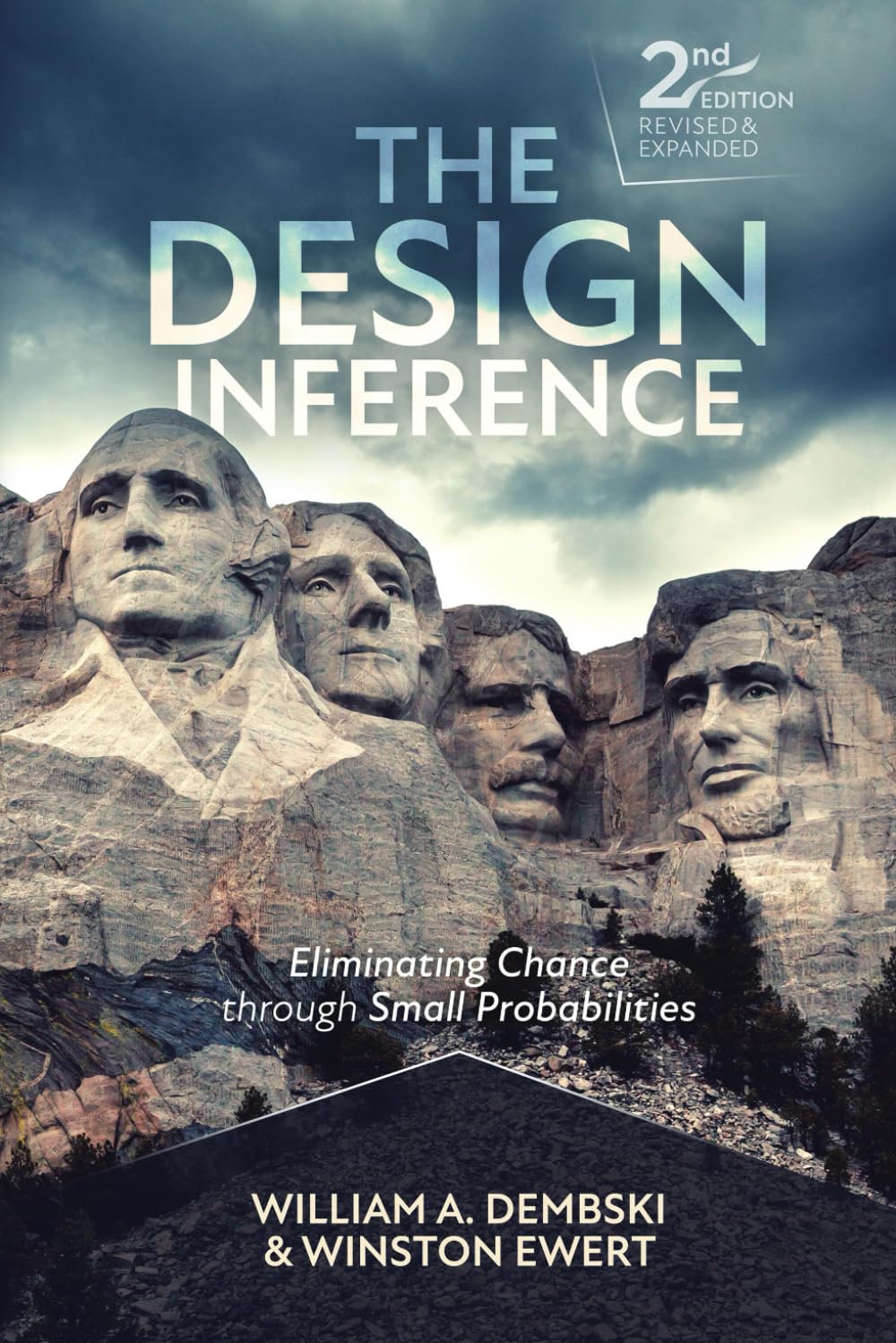Description
A landmark of the intelligent design movement, The Design Inference revolutionized our understanding of how we detect intelligent causation. Originally published twenty-five years ago, it has now been revised and expanded into a second edition that greatly sharpens its exploration of design inferences. This new edition tackles questions about design left unanswered by David Hume and Charles Darwin, navigating the intricate nexus of chance, probability, and design, and thereby offering a novel lens for understanding the world. Using modern concepts of probability and information, it exposes the inadequacy of undirected causes in scientific inquiry. It lays out how we infer design via events that are both improbable and specified. Amid controversial applications to biology, it makes a compelling case for intelligent design, challenging the prevalent neo-Darwinian evolutionary narrative. Dembski and Ewert have written a groundbreaking work that doesn’t merely comment on contemporary scientific discourse but fundamentally transforms it.
Online Content
Endorsements
Well argued and eminently readable… I don’t see how any open-minded scientist can ignore this important book.
Sergiu Klainerman, Higgins Professor of Mathematics, Princeton University, member of the National Academy of Sciences
Clearly written, rigorous, and intellectually compelling. A work of genuine genius.
Stephen C. Meyer, Director of Discovery Institute’s Center for Science and Culture, author of Signature in the Cell, Darwin’s Doubt, and Return of the God Hypothesis
A compelling refutation of the neo-Darwinian narrative; it will be a gamechanger in the discourse on whether or not life has been designed.
Muzaffar Iqbal, Founder-President of the Center for Islamic Sciences, past Director of the Pakistan Academy of Sciences
Prepare to be dazzled. This new edition of The Design Inference is a tour de force of thinking and explaining-a veritable feast. If you are serious about understanding fundamental reality, evidence, and reasoning, read this book.
Gale Pooley, Associate Professor of Business Management, Brigham Young University-Hawaii, co-author of Superabundance
In this superb new edition of The Design Inference, Dembski and Ewert set design science on a solid scientific foundation and provide scientists with the opportunity to test their theories for and against design using objective quantitative methods.
Michael Egnor, Director of Pediatric Neurosurgery, Renaissance School of Medicine, Stony Brook University
The second edition of The Design Inference makes a compelling case that the ‘design’ in nature is real and can be scientifically inferred. As they show, the specified complexity of the information contained in DNA and RNA… cannot plausibly be attributed to unguided natural processes; logically and causally, it requires an intelligent designer.
Timothy P. Jackson, the Bishop Mack B. and Rose Stokes Professor of Theological Ethics, Candler School of Theology, Emory University
This second, and expanded, edition benefits greatly from the significant advances in understanding the design inference over the last twenty-five years… The Design Inference shows how meaningful events can be, and indeed are, recognized using a simple criterion: specified complexity. In this second edition, Dembski and Ewert carefully explain this criterion, showing how it… extends the reach of science.
Fred Skiff, the Harriet B. and Harold S. Brady Chair in Laser Physics, University of Iowa
This book is another important step along the way to validating intelligent design as a mainstream and scientifically robust alternative to Charles Darwin’s nineteenth-century philosophy of natural selection.
Andrew Ruys, Professor of Biomedical Engineering (Retired), University of Sydney
A pleasure to read… [and] worthy of attention and respect.
Christopher P. Grant, Associate Professor of Mathematics, Brigham Young University
In this second edition of The Design Inference, Dembski and Ewert present a formidable probabilistic and information-theoretic method for determining whether design, rather than chance, was the cause of an observed event.
Terry Rickard, PhD, Engineering Physics, University of California, San Diego
I highly recommend you give this book a serious read.
James P. Keener, Distinguished Professor of Mathematics, University of Utah




